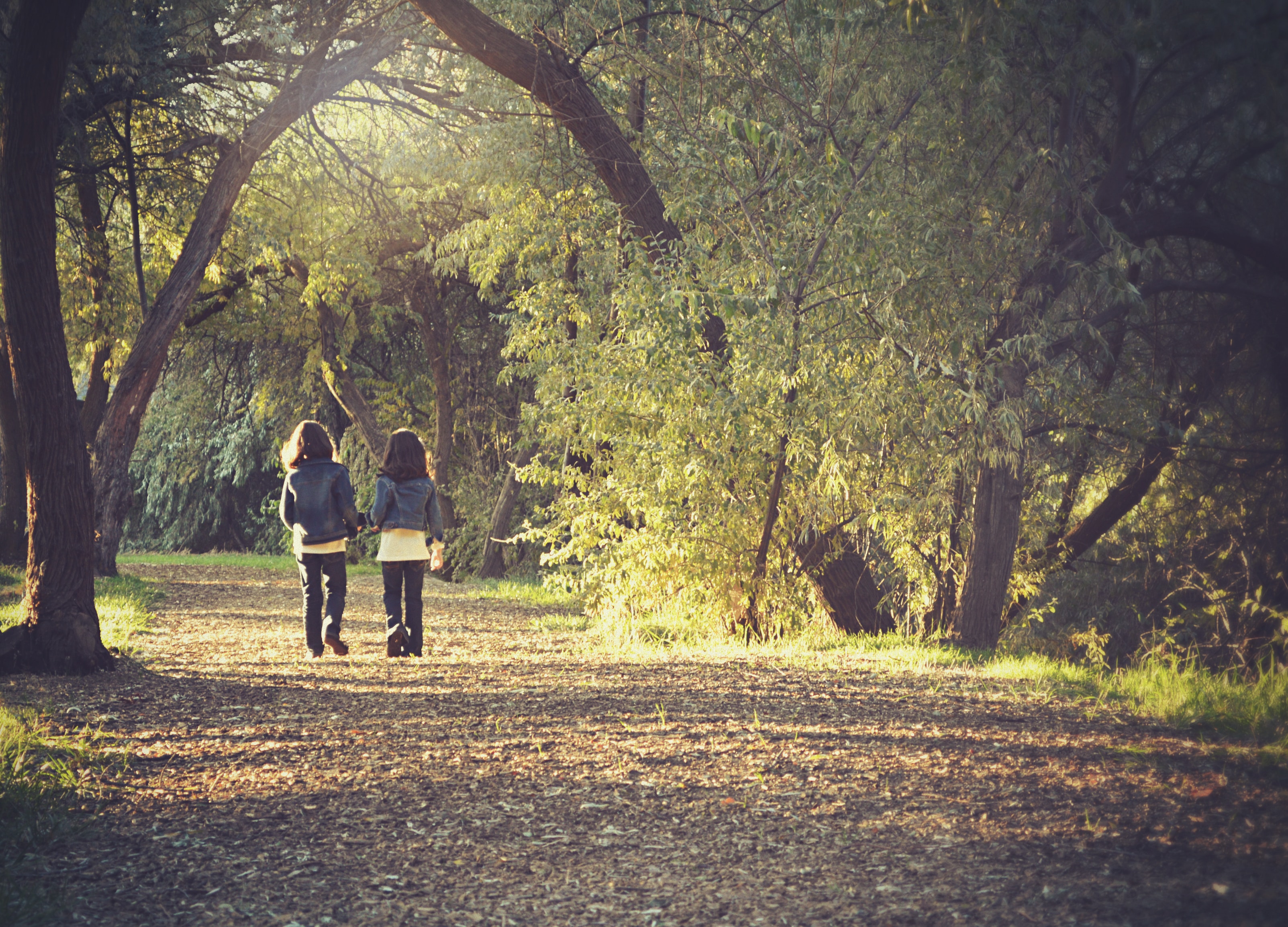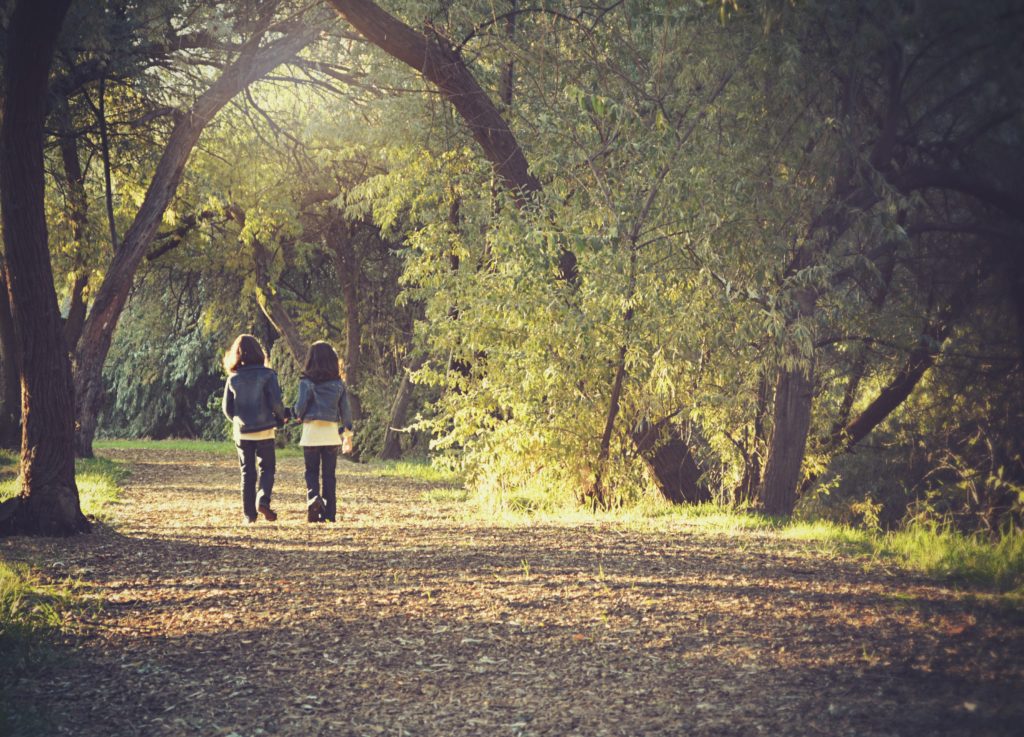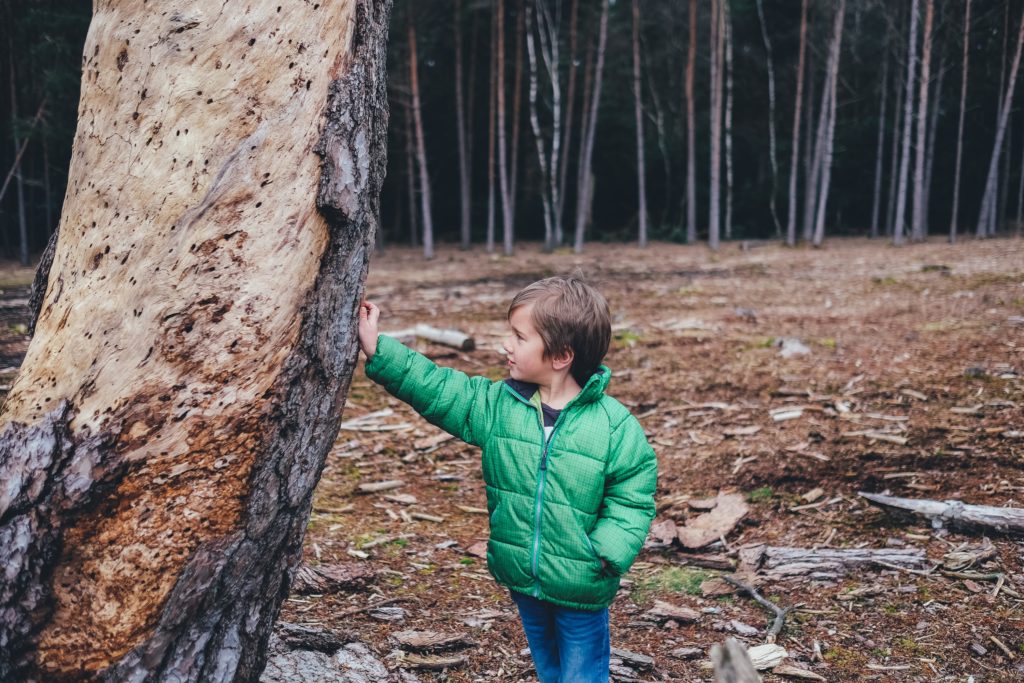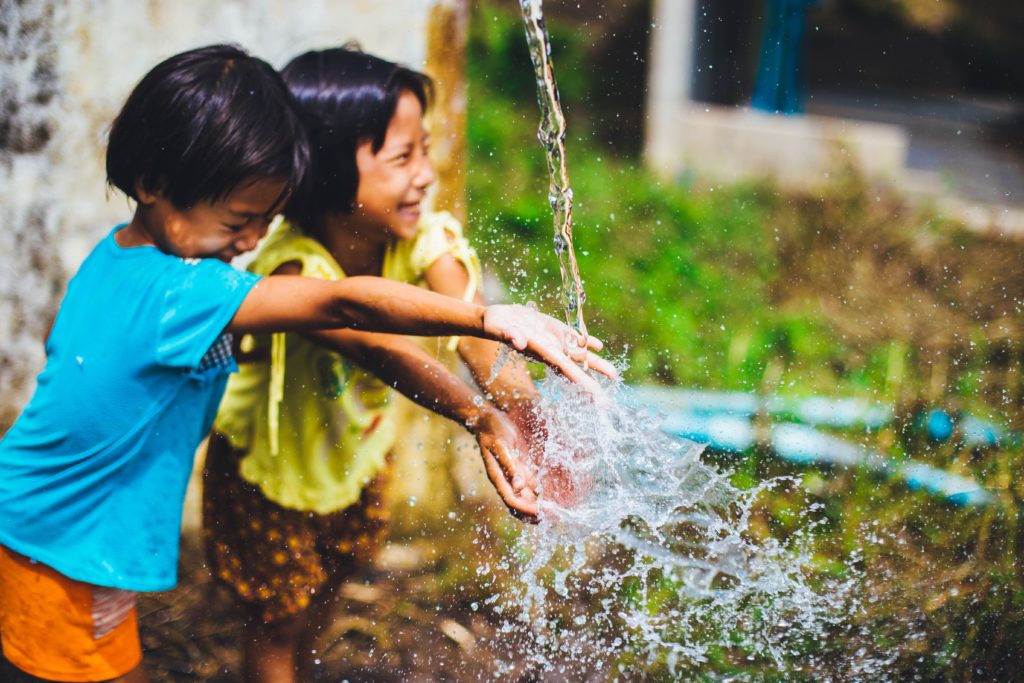Research shows that when kids spend time in nature, their well-being, motivation and confidence increases. There are numerous studies, such as this one recently published by the Wildlife Trust, which demonstrate that spending one hour a day in nature makes kids more environmentally and wildlife aware, happier and more motivated to do outdoor jobs. Here are some other benefits reported:
1–Improved relationships. Spending class time in nature has proved beneficial for teacher/student relationships as well as peer relationships.
2–Increased physical and cognitive activity. Connecting with nature provides children with the opportunity to spend their energy in a creative ways, such as hands-on exercise like jumping over logs or puddles, following paths, signs or directions. They can also develop their orientation skills by reading maps or using compasses. Most such activities are done away from modern technology, which helps kids develop non-city skills. It reduces stress and fatigue.
3–Fosters environmental responsibility. Kids learn how important nature is for our everyday life, how important is to have clean water, litter-free forests, how and where to build a fire and how to protect the habitat of the animals living in that area.
4–Stimulates creativity and imagination. There are so many class activities that can be designed while being in nature, or after taking a walk in nature. I never knew how important that was until we moved to a desert country and there were very limited possibilities to walk in nature. From picking colourful leaves for an art class, to identifying flowers and trees for science to explaining the use of tinder and the environment.
5– Better health. Spending time in nature gives kids more vitamin D, stimulates their immune system, decreases their risk of obesity, improves their coordination and balance, cognitive health and concentration.
6–Improved concentration for Special Educational Needs (SEN) students. Many studies have shown that students with some disabilities, such as ADS or ADHD, have shown improvement in concentration and seated activities after spending some time in the nature.
7–Provides opportunities for fun. Between school time, homework and after school activities, our children tend to have full schedules all day long, from a very young age. They seem to have no time to just have fun. We tend to provide them with a series of controlled activities in order to make sure they keep on learning something. How about just having fun???
8–Don’t have a forest? How about a garden? How about planting some vegetables such as tomatoes or beans? How about having some indoor plants that your child can take care of? How about a stroll in the park? A walk in the desert?? Yes, that’s what we do these days, in the country we live in, that’s our only option. You’ll be surprised to know how much fun that can be!
In case you can’t think of ideas for outdoor activities, here is a quick list:
- Dig in the dirt
- Collect leaves or seeds
- Climb trees
- Jump puddles
- Identify tracks or bird songs
- Cloud shapes?
- Build things from twigs and mud
What would you add to my list? Please drop me a line– I would love to hear your ideas!




